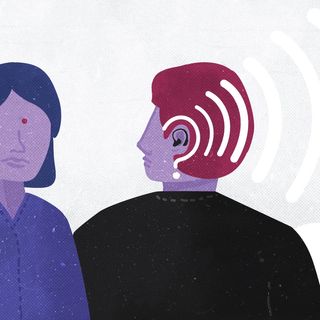
What Drives Human Behavior? Global Survey Says It’s Not Sex
Across 27 countries, people care more about family relationships than mating.

For four decades, evolutionary research has told us that finding a mate is the primary driving force in life. But a new survey of more than 7,000 people across the world suggests our foremost motivation and meaning come from the relationships and activities that involve our family members.
“People consistently rated kin care and mate retention [not mate seeking] as the most important motivations in their lives, and we found this over and over, in all 27 countries that participated,” first author Ahra Ko, a psychology graduate student at Arizona State University in the U.S., said in a statement. “The findings replicated in regions with collectivistic cultures, such as Korea and China, and in regions with individualistic cultures like Europe and the U.S.”
By contrast, finding a partner was, overall, rated as the least important social factor by survey respondents. The study authors suggest the disparity between this finding and previous decades’ conclusions about the primacy of mate-seeking is due to the overrepresentation of college students in previous studies. “College students do appear to be relatively more interested in finding sexual and romantic partners than other groups of people,” second author Cari Pick, also an ASU psychology graduate student, said in the statement. Even in this survey, single people were more likely than committed individuals to rank finding a partner as a driving force in life, and men more likely than women — but all groups overwhelmingly put caring for and supporting family members at the top of their priorities.
Related on The Swaddle:
What It’s Like to Be Openly Queer and Exist Within an Indian Family
Interestingly, a focus on existing, long-term family and romantic/sexual relationships correlated with better psychological well-being more than did a focus on seeking out new sexual or romantic relationships. This backs up the conclusions of the Harvard Study of Adult Development, which, at 80+ years and ongoing, is the world’s longest-running study of adult life.
“The surprising finding is that our relationships and how happy we are in our relationships has a powerful influence on our health,” Robert Waldinger, director of the Harvard study, a psychiatrist at Massachusetts General Hospital and a professor of psychiatry at Harvard Medical School, said in 2017. “Taking care of your body is important, but tending to your relationships is a form of self-care too. That, I think, is the revelation.”
The Harvard study did not identify familial relationships specifically as the most fulfilling, just close, personal relationships broadly, and it’s unclear how or if the new survey from ASU defined family — a critical question, given that family structures are in flux all over the world. It seems like, however, that regardless of how individual definitions may vary, “everybody cares about their family and loved ones the most, which, surprisingly, hasn’t been as carefully studied as a motivator of human behavior,” senior author Douglas Kenrick, a professor of psychology at ASU, said in the statement.
Liesl Goecker is The Swaddle's managing editor.
Related


Untrending: Sauna Belts Can’t Really Trim Belly Fat
